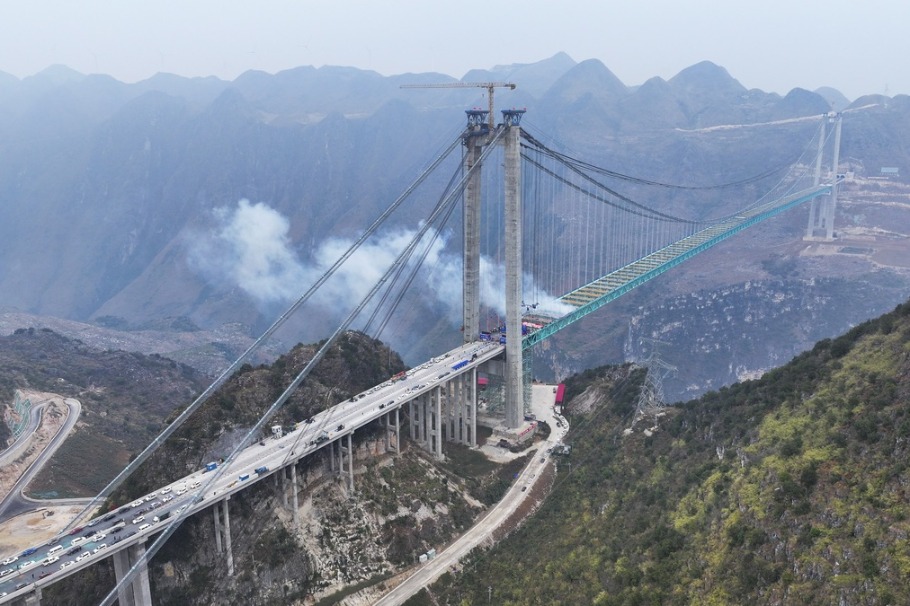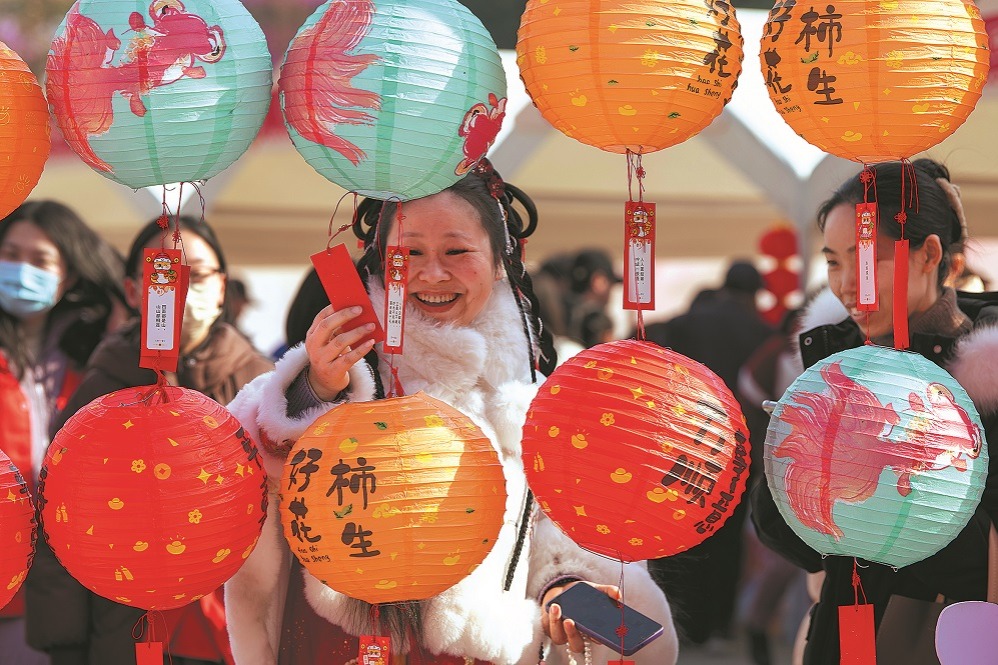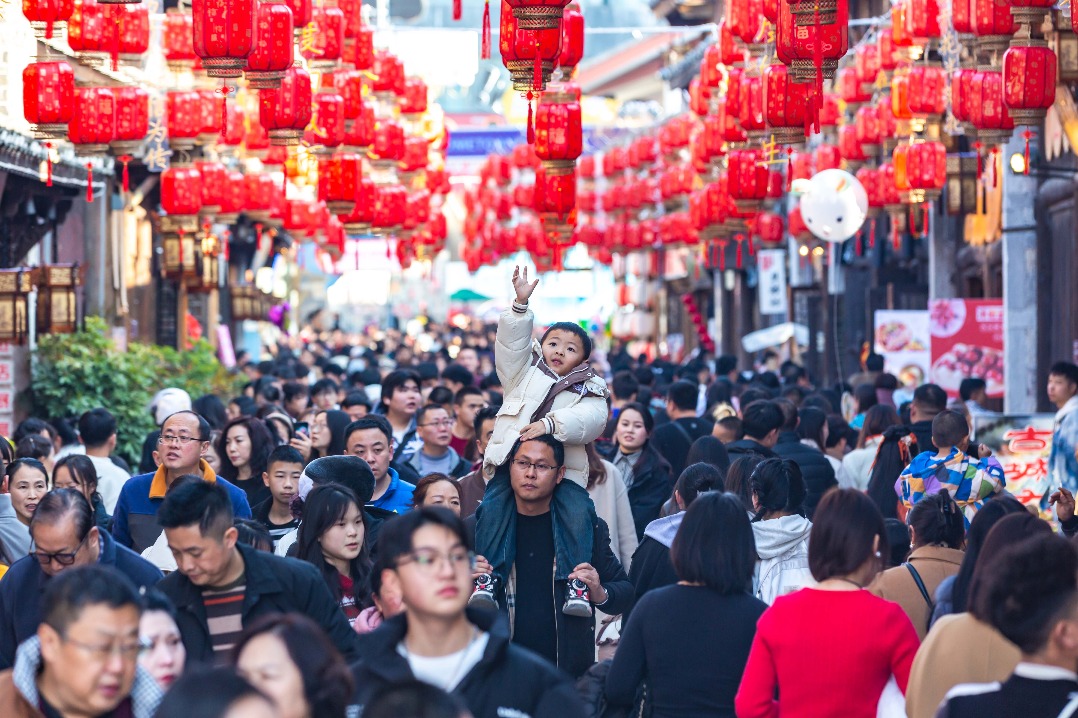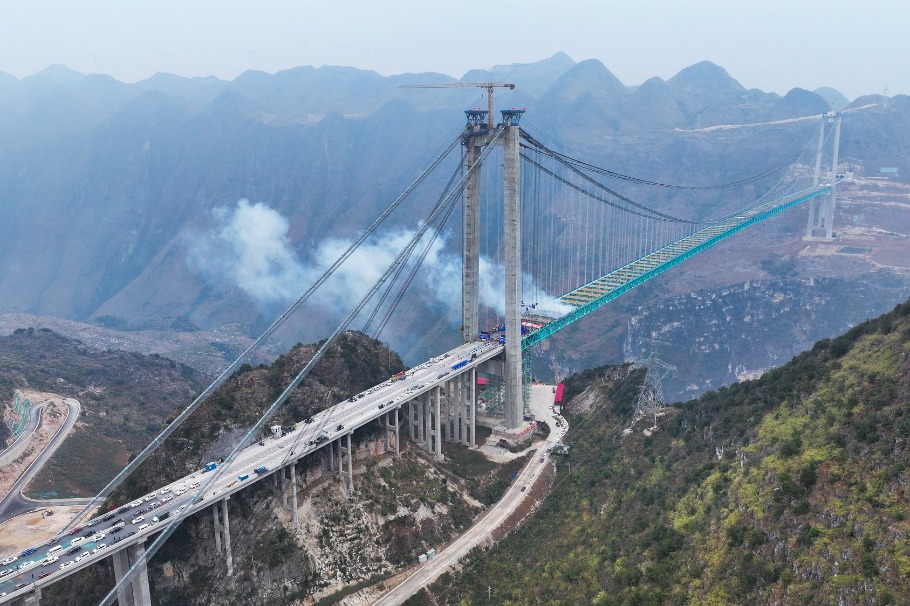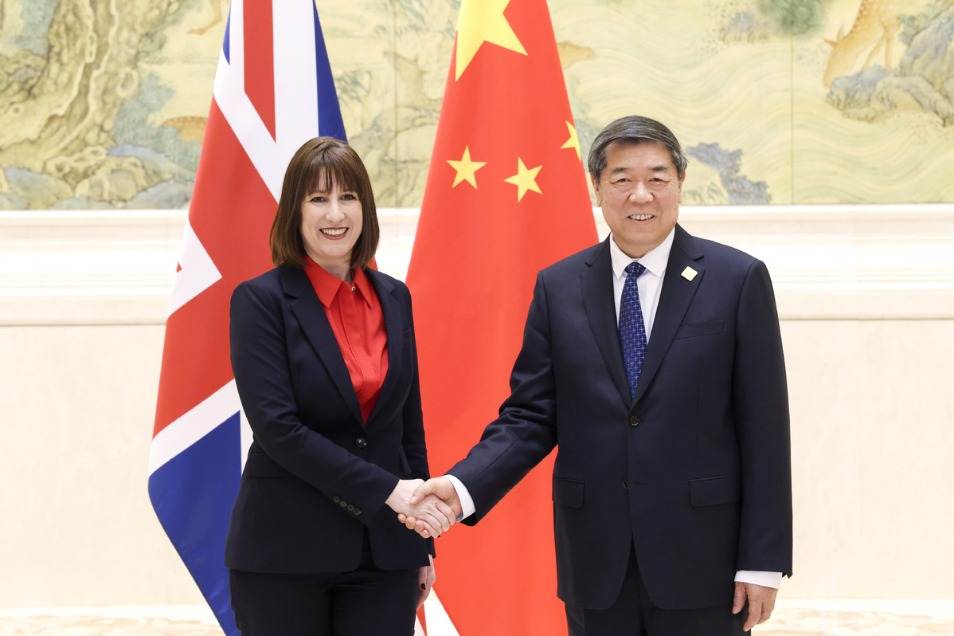Experts' take on the BRICS Summit

Emerging markets to lead global governance reform
By Maya Majueran
The 15th BRICS Summit in Johannesburg, South Africa, from Tuesday to Thursday, is the first offline meeting of BRICS in the post-pandemic era — the last three were held under the chair of Russia, India and China in the virtual format due to the COVID-19 pandemic.
BRICS(Brazil, Russia, India, China and South Africa) was established with the intent of creating more space for emerging economies to play a more significant role in global political and economic governance. BRICS accounts for about 40 percent of the world population, about 20 percent of global trade, and contributes more to global GDP(in purchasing power parity terms) than the G7. Also, the BRICS countries, especially China, have been the main engine of global economic growth over the past few years, with the grouping's deep involvement in global governance being a prominent feature in the fast-changing international landscape.
Economic relationships between the BRICS countries have been formalized by the creation of the BRICS Business Council, the Contingent Reserve Agreement and the New Development Bank. The BRICS Business Council comprises 25 prominent entrepreneurs, five each from Brazil, Russia, India, China and South Africa, representing different industries and sectors. The council meets twice a year and presents the final report to BRICS leaders at the summit every two years.
The council has several business working groups on issues such as financial services, manufacturing, infrastructure, skills development, energy, the green economy, the digital economy, agri-business, aviation and deregulation. It also organizes an annual BRICS Business Forum, offering a platform for member countries to discuss and deliberate on key economic cooperation issues and make recommendations on intra-BRICS trade and industry issues.
The BRICS Contingent Reserve Agreement, a currency swap mechanism intended to provide short-term liquidity support, strengthens the financial stability of member countries, mitigating any balance-of-payment crisis. In its present shape, the Contingent Reserve Agreement should be seen as an alternative, rather than a challenge, to the International Monetary Fund.
As for the New Development Bank, it is a multilateral development bank headquartered in Shanghai. It was established to support infrastructure and sustainable development efforts in BRICS countries and other emerging economies and developing countries, in order to boost their economic development through the use of cutting-edge technologies and innovations. The bank plays a significant role by providing countries with capital and know-how, thus helping them achieve their respective development goals and creating equal opportunities for all countries' development.
BRICS has been holding annual summits since 2009, with member countries taking turns to host the event. The theme of the Johannesburg summit is "BRICS and Africa: Partnership for Mutually Accelerated Growth, Sustainable Development and Inclusive Multilateralism". Given the increasing international prominence of the BRICS countries, the expectations from the Johannesburg summit are high.
In Johannesburg, BRICS countries need to discuss trade and investment facilitation, sustainable development, innovation and global governance reform. And a new gold-backed global reserve currency is what emerging economies need, as they are outraged by the US dollar's dominance in global trade and as an international reserve currency.
The United States and its Western allies have weaponized the dollar to help maintain Washington's global economic and geopolitical supremacy. The US, for example, has imposed economic sanctions on nearly 40 countries, including Cuba, Russia, the Democratic People's Republic of Korea, Iran and Venezuela, affecting nearly half of the world's population and causing untold hardships for ordinary people in those countries and hampering the growth of their economies.
Therefore, many emerging economies have been working to internationalize their currencies and promote their use in global trade and investment, and calling for global trade to be conducted in currencies other than the US dollar to end the dollar's hegemony.
In fact, the de-dollarization trend is gaining momentum. The Russia-Ukraine conflict and subsequent Western sanctions against Russia have prompted the BRICS countries to intensify their efforts to rid global trade of the dollar's hegemony. Over the past year, Russia, China and Brazil have greatly increased the use of non-dollar currencies in cross-border transactions.
Another key discussion at the Johannesburg summit is likely to be on BRICS' expansion by incorporating new members. More than 40 countries have expressed the desire to join BRICS. Aside from the 23 countries that have formally applied to join the grouping, more than 20 countries have informally expressed interest in becoming BRICS members. They include the major countries in the Global South, whose inclusion will add to the economic and geopolitical importance of BRICS.
Many countries want to join BRICS because they believe it would help them boost their economic recovery. In particular, countries of the Global South want to reform the international order, which they believe is unfair and Western-centric — and they are justified in seeking such reform.
The US and its Western allies have long influenced the world order with their own values and policies in the name of promoting "democracy" and "defending" human rights, and have launched smear campaigns against countries whose political systems are different from theirs. They even bully emerging markets and developing countries, forcing them to take sides in disputes with countries that don't adhere to the Western-centric ideology and politics.
Fortunately, the Global South is emerging as a key player in international relations, as emerging economies and developing countries are no longer reluctant to demand a change in the Western-centric world order. The US and its Western allies should listen to the Global South's concerns and build a global governance system and international financial architecture which benefit all. If not, the Global South, with the help of BRICS and the Shanghai Cooperation Organization, will lead that change and build a world order that is fair, just and equitable.
The author is director of Belt and Road Initiative Sri Lanka, an independent and pioneering Sri Lanka-led think tank. The views don't necessarily reflect those of China Daily.
















